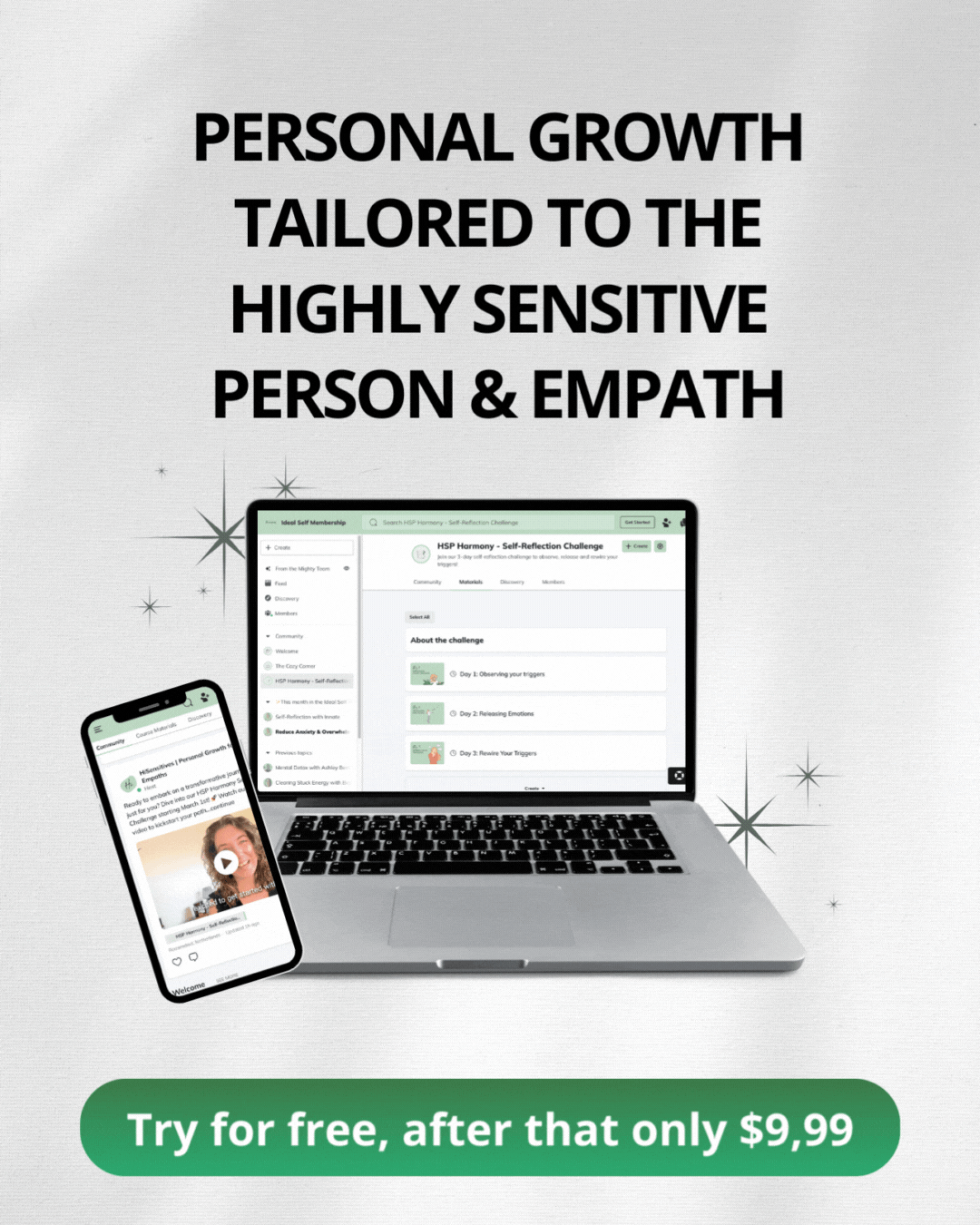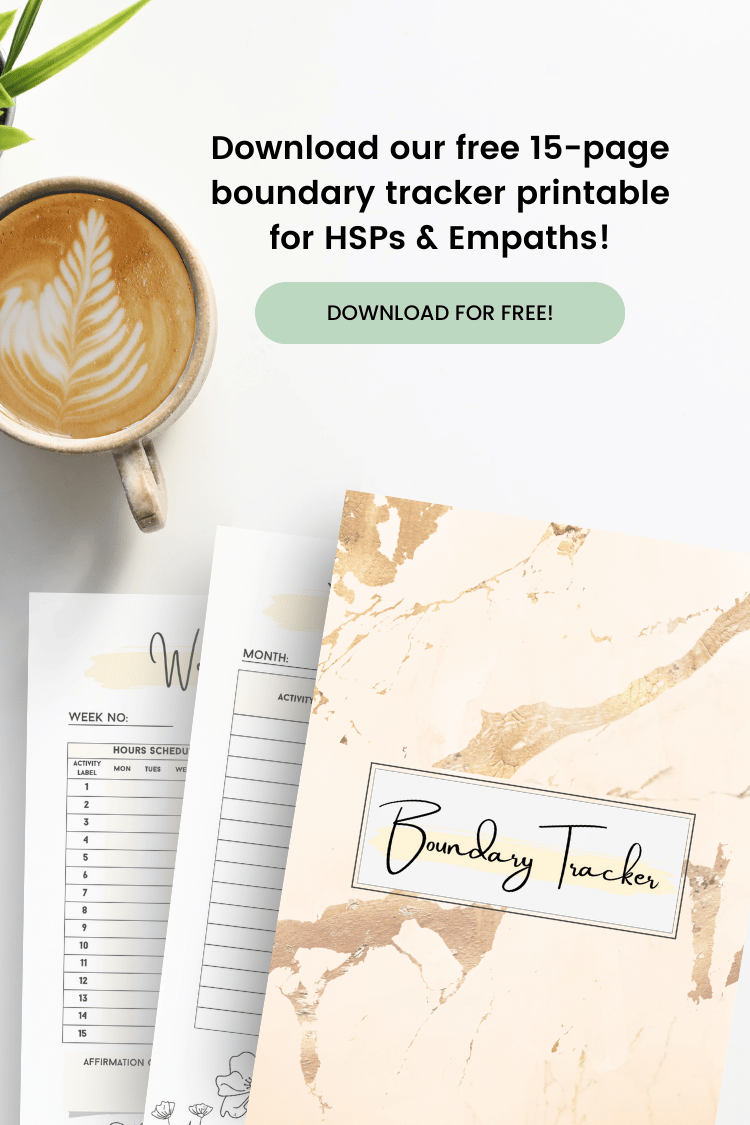People often procrastinate doing tasks that they perceive to cause them some kind of discomfort. Mental or physical uneasiness is enough to deter most sensitives from completing a task. However, you have the opportunity to overcome these fears and stop procrastinating by choosing to read on.
Hey there, lovely readers! We want to be completely transparent with you. Some of the links in this blog are affiliate links, which means if you click on them and make a purchase, we may earn a small commission at no additional cost to you. 😊
We only recommend products and services we genuinely believe in and have personally used or researched. Your support through these links helps us keep bringing you valuable content, so thank you for being amazing!
Estimated reading time: 9 minutes
Admittedly, writing this article has proved primarily difficult for me in a multitude of ways. I consider myself a highly sensitive person, however, imposter syndrome hit when I realized I too procrastinate very often.
With some journaling and inner reflection, I was able to construct a comprehensive guide to stop procrastination as a highly sensitive person. Verified by yours truly, these things can help you stop your procrastination and fight the reasons behind it.
Here’s What You’ll Learn:
- Becoming Aware Of Your Procrastination
- Stop Procrastinating By Acknowledging The Fear Of Failure
- Release Negative Energy
- Create a Clean Space To Inspire Yourself
- Get Yourself Motivated To Stop Procrastinating Long Term
- Set Aside The Time To Stop Procrastinating
- Hold Yourself Accountable When Procrastinating
- As Always, Check-In Often With Yourself
Becoming Aware Of Your Procrastination
Firstly, you have to recognize where you stand in relation to the tasks at hand. Truly take a second to admit that you are procrastinating. Unfortunately, you feel hesitant in doing these actions. Despite knowing they will have a net benefit. Notably, it’s a natural feeling to dread something, what matters is how long you stay in that stage.
Sometimes, it can feel like all thoughts of reason are gone and all you can think about is why you shouldn’t in fact do anything. The first step is to acknowledge that you are procrastinating and accept that you have fallen into an unmotivated state.
Granted, procrastinating isn’t inherently a bad thing. Highly sensitive people will tend to procrastinate from time to time as energy flows into and out of you.
Therefore, you procrastinating is just a sign that you are lacking the energy and motivation to better your current situation. This can apply to virtually anything that you are procrastinating including household chores to self-care.
Stop Procrastinating By Acknowledging The Fear Of Failure
Procrastinating as a highly sensitive person usually stems from some sort of fear. You can fear the outcome or the process of doing the action itself. Additionally, you may even believe that participating in this activity may actually cause you some harm or discomfort.
Mostly, these thoughts and emotions are exaggerated in nature and unrealistic. Furthermore, the chances of you typing up that report and simultaneously developing arthritis are highly unlikely. In my opinion, what we really fear is failure.
To actually stop procrastinating, you should look fear in the face and analyze it. Where does it come from, and why are you holding on to it? Moreover, this fear is comforting you somehow. If you get to the bottom of it, then you won’t need to depend on it.
Face the fear and prevent it from taking control over what you think you’re capable of. You may have to sit down with yourself for a while and sincerely think it over. Notably, you just need enough motivation to want to ask the questions. Your highly sensitive person will appreciate the effort and help you along the way.

Release Negative Energy
Continuously, you can release the pent-up frustration to allow room for the highly sensitive person to stop procrastinating. Choose to let go of this negative energy by first letting go of the fear of failure. Then, you can begin your process of self-care.
Regardless of your methods, most forms of self-care can help the highly sensitive harness their emotions and focus their energy. Meditating, deep breathing exercises, and journaling are all proactive ways to get closer to the inner you. Ask yourself, what truly motivates you? What wakes you up in the morning and gets you out of bed?
Nonetheless, releasing negative energy is rarely ever a bad thing. The benefits include a healthier and more clear mind. Ultimately, this will lead to better overall mental health and allow room for motivation to flourish.
Create a Clean Space To Inspire Yourself
While procrastinating, highly sensitive people tend to utilize the smallest excuses to avoid the task they are supposed to be doing. Intentions can get wary when you are in an environment that is screaming for your attention. With this in mind, take a look around you. Could the space you’re working use a little bit of TLC? Or try the famous KonMari method?
The mind can create the most beautiful things when given the space to be inspired. Similarly, you can be the most productive highly sensitive person once you have a clean or at least tidy area to work in.
The other steps may seem more draining and definitely require more effort. However, after they’re done, you can cater towards the easier actions. Hence, tidying up for 10 minutes out of your day to put you in a better state of mind. After cleaning, you will feel not only physically cleansed but mentally lighter as well.
Get Yourself Motivated To Stop Procrastinating Long Term
Often, highly sensitive people can tend to get bursts of energy and then may get exhausted before finding a routine. Meanwhile, you still need to find the motivation to create an effective routine that works primarily for you and your schedule.
This motivation can come from finding things to be grateful for in your life and showing appreciation. Also, you can take the time for yourself to fully relax. You may feel inspired to start something new. By changing your mindset, you can stop procrastinating and continue in your approach to a new lifestyle.
Alternatively, you could choose to make smaller to-do lists in order to feel rewarded for accomplishing the items on them. Understand your capabilities and start small and easy to gradually build up that motivation.
Or, decide to tackle the hardest task and then the rest in descending order of difficulty. It could lift a weight off of your shoulders that makes all of the other things seem easier in comparison.
Set Aside The Time To Stop Procrastinating
Ultimately, you will find that you limit yourself with the amount of time you allot for each job on your daily to-do list. If you tell yourself it will take you one week to complete an undertaking, then it shall. Meanwhile, if you give yourself one day then you will discover the same notion.
Curiously, the key to stopping procrastination on a daily basis is to set aside a specific time for every task. This process is often referred to as “time blocking”. The idea of organizing your day or your to-do list from the hour you wake, to the time you wish to finish working.
Additionally, you should try grouping your items by category. For instance, if you intend to check the mail think about what else you could accomplish outside. Take out the trash or go for a walk. Productivity comes in all shapes and sizes, so set aside the time and begin stopping your procrastination.
Hold Yourself Accountable When Procrastinating
On the other hand, complacency is the downfall of productivity. Once you begin being comfortable with not improving, you are more likely to procrastinate. Once you have a routine that works for you, you have to try your best to stick to it.
In the event something isn’t working, then you should change it. There is virtually no use in a lifestyle that doesn’t serve you. Let there be consequences for not following through, but don’t be too hard on yourself.
Perhaps, you can give yourself a consequence when you don’t live up to your standards. Then, reward yourself when doing well on completing what you set out to do. Essentially, the goal is to find a healthy balance. Only then can you start practicing it to stop procrastinating.

As Always, Check-In Often With Yourself
Don’t allow those repressed emotions to do the damage they used to. Negativity does not hold any power over you unless you allow it to. And, this is directly the same way to keep procrastination off your mind.
Think often about whether you are progressing or regressing. Are you content with your level of productivity? Have you given yourself space to grow as a highly sensitive person?
How about we check in with each other down in the comment section below? Comment something you learned in this article. Are you willing to try anything listed in order to stop procrastinating? We look forward to the conversation and supporting you on your productivity journey as a highly sensitive person.
If you want to read up more on the topic of procrastination, make sure to check out the book ‘The Fear of Failure: How To Become An Action Taker, Stop Worrying, Overcome Procrastination and Perfectionism‘.










